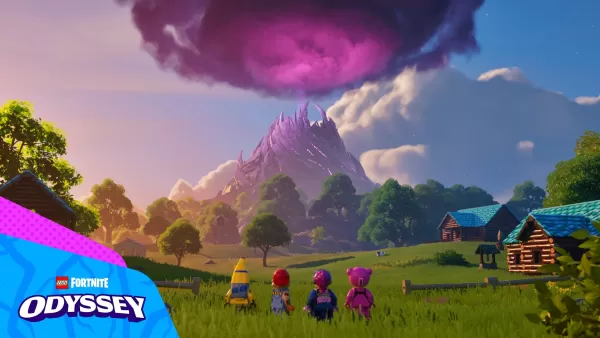Several weeks back, Microsoft implemented price hikes across its entire Xbox Series console lineup along with numerous accessories worldwide, while confirming select holiday season titles would retail at $80. This followed PlayStation's regional console price increases mere days earlier and Nintendo's Switch accessory adjustments coupled with its premiere $80 game announcement.
The tariff-driven pricing surge has materialized, creating a perplexing landscape of escalating costs across the gaming ecosystem. To contextualize Xbox's announcement amidst this trend, we consulted industry analysts about the driving forces, projected gaming expenditures in the coming year, and whether market sustainability is at risk. While core gaming platforms aren't disappearing, consumers should brace for significantly higher costs across all fronts.
Understanding the Pricing Surge
When questioning analysts about Microsoft's substantial and immediate price revisions, responses converged on recurring tariff concerns intersecting with manufacturing cost inflation. The specter of fluctuating U.S. tariff policies under the Trump administration formed a persistent undercurrent.
"Given Xbox hardware originates from Asian manufacturing hubs, these increases were inevitable," observed Dr. Serkan Toto of Kantan Games. He noted Microsoft's strategic timing leveraged macroeconomic uncertainty to globally implement hikes simultaneously rather than phased regional rollouts. "This consolidated consumer reaction while minimizing prolonged backlash."
Joost van Dreunen, NYU Stern professor and SuperJoost Playlist author, interpreted Microsoft's sweeping adjustments as tariff-responsive recalibration rather than incremental testing. "By synchronizing hardware, subscription, and first-party title increases, they're reinforcing competitive positioning in an increasingly service-dominant market where hardware functions primarily as entry points."
Additional analysts highlighted tariff impacts, with Newzoo's Manu Rosier noting the pre-holiday announcement allowed partners and consumers adjustment periods. Alinea Analytics' Rhys Elliott contextualized game price hikes as compensating tariff-impacted hardware margins, emphasizing business-wide cost balancing.
Ampere Analytics' Piers Harding-Rolls identified supplementary inflationary pressures and supply chain costs, stating: "Switch 2's launch pricing and Sony's precedent created favorable momentum. The U.S. absorbed disproportionate increases (27% for Series S) due to tariff exposure, while EU/UK adjustments remained conservative."
Industry Domino Effect
Analysts unanimously anticipated PlayStation mirroring Microsoft's pricing trajectory, particularly regarding $80 software. "This merely begins the premium repricing wave," Elliott asserted. "With Nintendo and Xbox establishing $80 benchmarks, publishers will universally adopt viable premium pricing - including temporal decay strategies post-launch."
EA's subsequent declaration maintaining current pricing (for now) offered temporary counterpoint before Niko Partners' Daniel Ahmad noted: "Despite U.S. market hesitancy, Sony's regional PS5 increases suggest inevitable stateside adjustments." Omdia's James McWhirter flagged PS5's China-centric manufacturing amplifying tariff vulnerability, while Circana's Mat Piscatella refrained from definitive predictions but echoed ESA's framing of tariffs as root causes rather than symptoms.
Market Resilience Assessment
Contrary to affordability concerns, analysts dismissed substantial demand erosion. Harding-Rolls referenced Xbox's service-centric rebranding cushioning hardware declines, with GTA 6's anticipated 2026 impact outweighing interim sales dips.
Spending patterns will likely redistribute rather than contract, per Elliott: "Gaming maintains remarkable price elasticity. PlayStation/Nintendo's sustained generational performance despite stagnant (or elevated) pricing proves premium demand durability alongside flourishing in-app economies." Rosier projected heightened selectivity favoring subscriptions and discounted bundles over standalone purchases.
Regionally, Harding-Rolls anticipated U.S. sensitivity given tariff concentration, while Ahmad highlighted Asian/MENA growth corridors like India and China. McWhirter noted publishers would leverage discounting and bundling to offset full-price resistance, potentially reviving Switch Online vouchers at adjusted rates.
Piscatella struck cautious tones regarding economic uncertainty: "Free-to-play ecosystems may consolidate engagement as discretionary spending contracts across essentials. Earlier 4.8% growth projections now appear optimistic against potential double-digit declines amidst unprecedented market volatility."
The overarching consensus? Gaming persists as recession-resilient entertainment, but its consumption paradigms face transformative repricing across hardware, software, and services - with analysts emphasizing that nobody truly knows how deep these changes will run.
[All original HTML tags and structure preserved per requirements]







![Chubby Story [v1.4.2] (Localizations)](https://images.737c.com/uploads/85/1719638042667f981a5e9f8.jpg)

